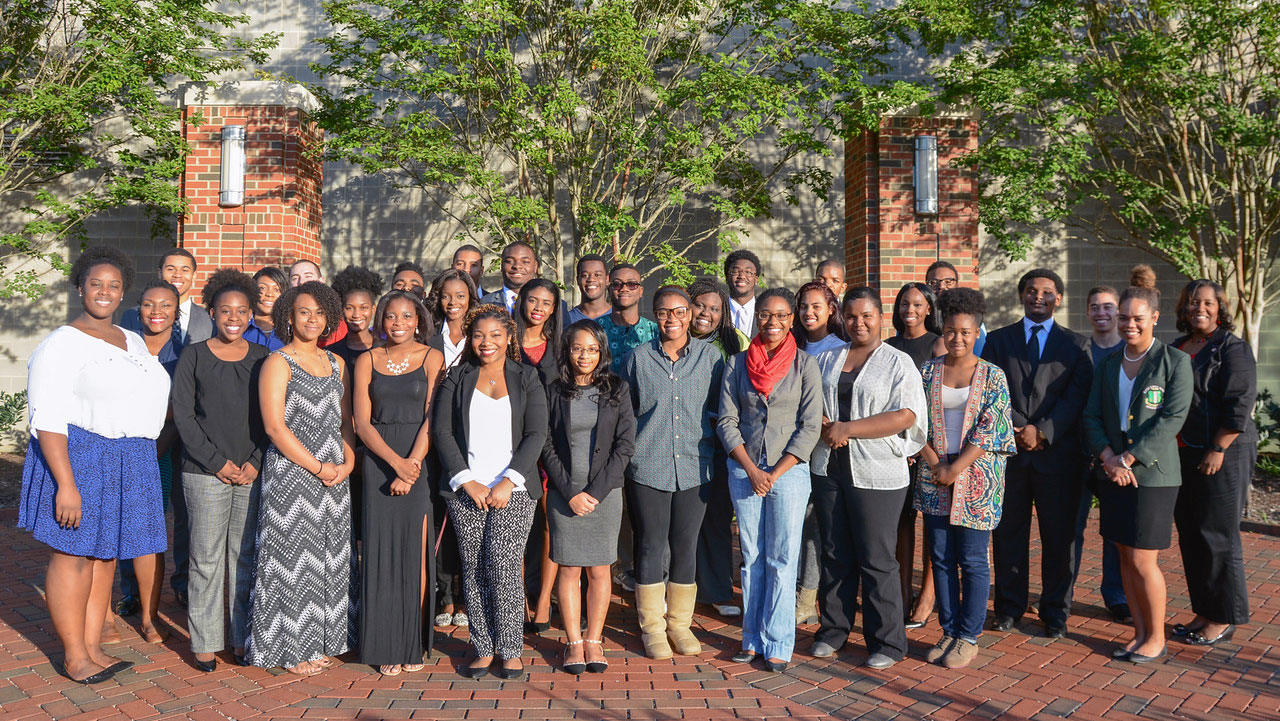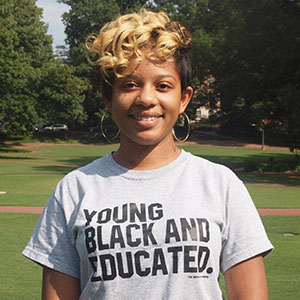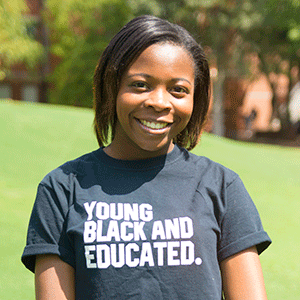
We profiled African American Student Advisory Council Vice Chair Bria Edwards Swann, a senior in applied nutrition from Baltimore, Maryland and Parliamentarian Maya Davis, a junior in philosophy of law from Whitsett, North Carolina to find out more about this student organization.
The African American Student Advisory Council is a forum for exchanging ideas and keeping the black student body informed. Comprised of representatives from 25 organizations that serve the black and African communities on campus, AASAC has representatives from each organization and each class year. The purpose of AASAC is to voice the concerns of the black community, fostering unity among students. Members of AASAC organizations are always welcome to attend meetings.

This year, Vice Chair Bria Edwards Swann hopes that the organization will be more intentional with its impact on campus. “We have a lot of access to Chancellor Woodson, Vice Chancellor Mike Mullen and Assistant Vice Chancellor Justine Hollingshead. We want that access to be utilized so that when things happen that affect us across the campus, people know that they have a space within us to get their voice heard.” Swann added that she hopes students will understand the importance of having AASAC and use the resource more.
Over the past two years as vice chair, Swann has noticed room for improvement in the amount of collaboration among the organizations of AASAC. This year she hopes to see the organizations work together more. “There should be unity to show that AASAC can function as a group and not just individual organizations.” To help this effort, Parliamentarian Maya Davis points out that AASAC has meetings to discuss how organizations can better collaborate and reduce over-programming with the goal being to reach more students through unified efforts.

One of the major purposes of AASAC is to identify and address the needs and concerns of African American students through unity, action and effective communications. AASAC achieves this through meeting with the chancellor and voicing the qualms of the black student body. It also works to ensure that black students are safe in the spaces that they occupy. Davis highlights AASAC’s ability to call emergency meetings when needed. “If something happens on campus, all come together and allow people to voice their concerns and empathize with them because we do understand what’s going on.”
With over 25 organizations, Maya says the key to staying organized is documenting and sending out meeting minutes to the representatives. AASAC makes sure that no voice is silenced because it understands the significance of each organization’s voices.
Austin Butler is a communications intern in the Office for Institutional Equity and Diversity. She is a senior majoring in science, technology and society.